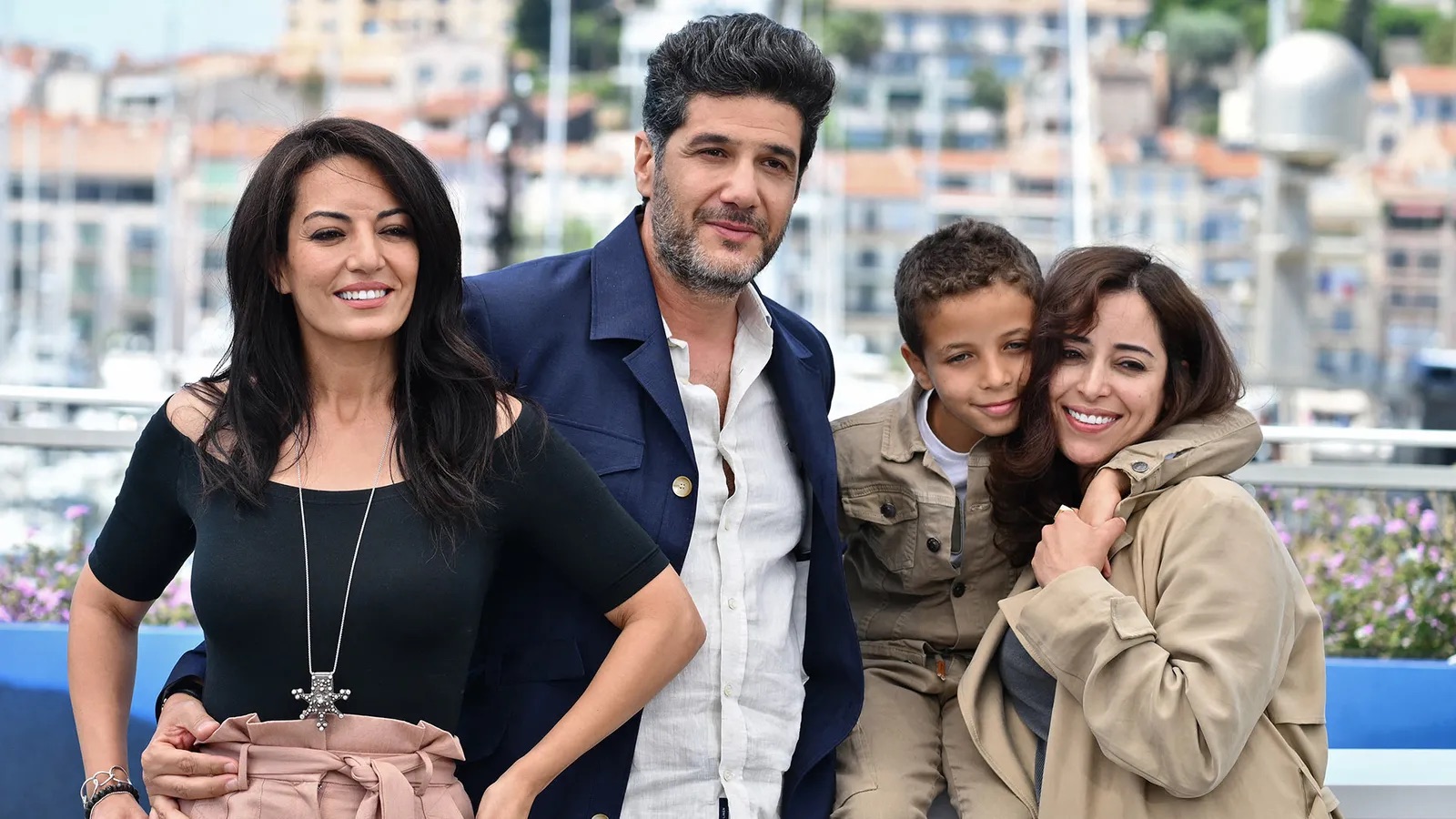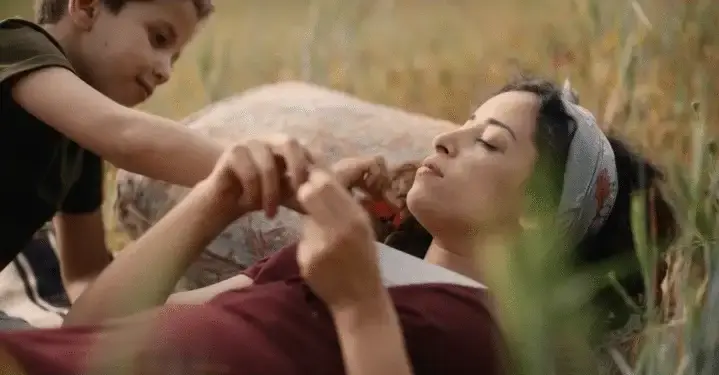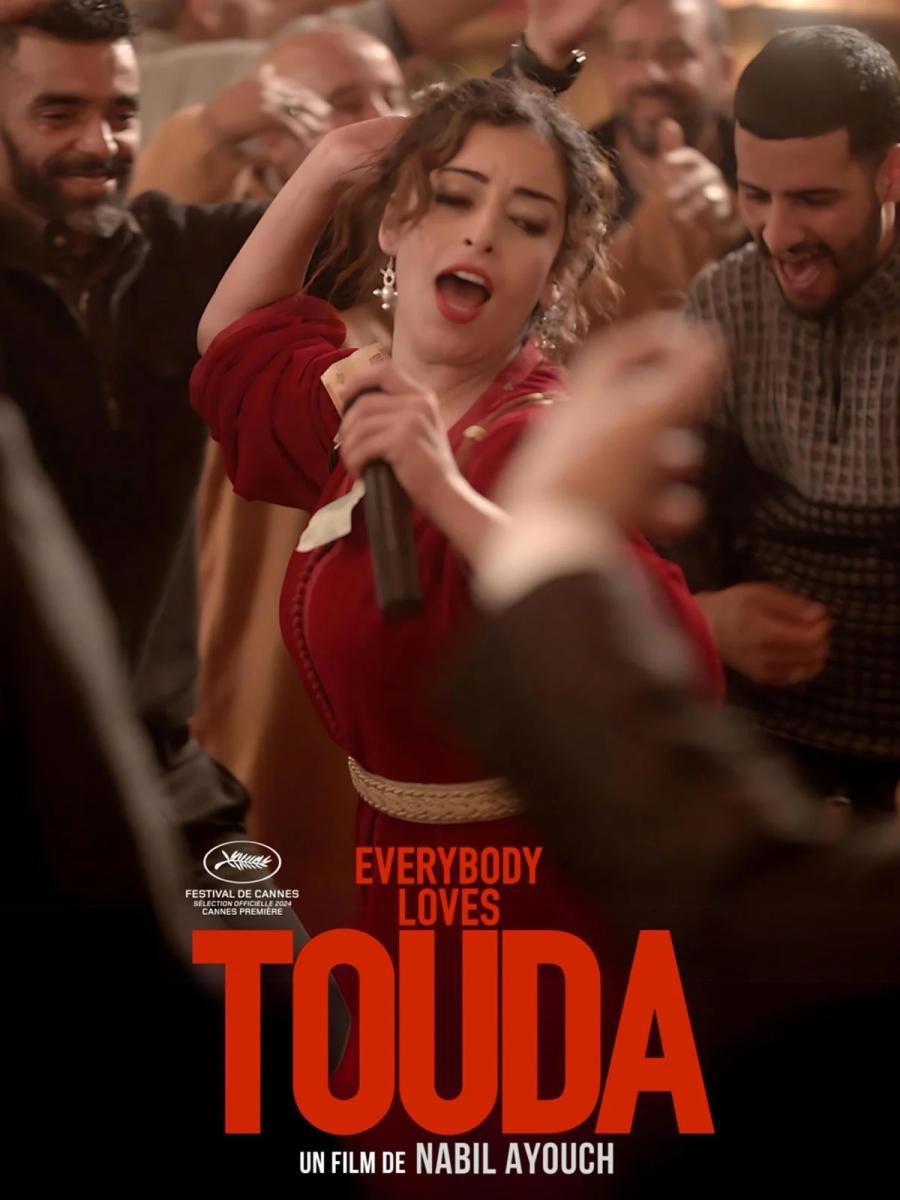Since 2012, Nabil Ayouch and Maryam Touzani have been essential figures of the Cannes Film Festival, regularly presenting films they have co-created. As a director, Nabil Ayouch was selected in the Un Certain Regard section in 2012 with God’s horses, at the Directors’ Fifteen in 2015 with Much Loved And in official competition in 2021 with High and strong. This year, he returns with Everybody LOVES TOUDAa work co -wrote with Maryam Touzani, who accompanies her as always.
The main role of Everybody LOVES TOUDA is brilliantly embodied by Nisrin Erradi, a Moroccan actress who had previously played Samia in Adam, A film directed by Maryam Touzani And co -written and produced by Nabil Ayouch, presented in the Un certain Regard section in 2019.
For writing Everybody LOVES TOUDANabil Ayouch once again worked in close collaboration with Maryam Touzani, member of the Jury of Longers last year and director of the delicate Caftan blue (A certain look, 2022) and Adam. In this last film, she already directed Nisrin Erradi, who now performs Touda, after an intensive immersion with the sheikhates to prepare her role.
The Ayouch-Touzani duo has become synonymous with quality and daring in Moroccan cinema, approaching social themes with a rare depth and sensitivity. Their artistic collaboration, marked by a constant exploration of human stories, brings a narrative richness to their films.
Nabil Ayouch continues to raise Moroccan cinema by exploring the taboos of the company. After having treated jihadism in God’s horses and prostitution in Much Loved (2015), he looks at sheikhates in Everybody LOVES TOUDApresented out of competition in the Premier Cannes selection.
Touda is a woman who dances, sings and drinks in the bars of her village, while living a lot with her deaf son. She dreams of leaving this daily life for Casablanca to become a big sheikha and offer her son a better education in a specialized school.
Before the projection of Everybody LOVES TOUDAThierry Frémaux, general delegate of the Cannes Festival, spoke to greet Moroccan cinema and the talent of Nabil Ayouch. He described Morocco as “a large cinematographic country” and rented the continuous contributions from Nabil Ayouch, which allow the Festival to travel through the cultural diversity of Morocco. Thierry Frémaux also stressed that this time, Nabil Ayouch takes us into the world of Moroccan music, an often overlooked dimension of fans of popular music, whether in the Arab or internationally.
Everybody LOVES TOUDA Explore the world of Al Aïta, a musical form and sung deeply rooted in Moroccan culture. Al Aïta, which appeared centuries ago in the Asfi region on the Atlantic coast, is a song of revolt and resistance. Historically, women were prohibited from singing, but a legendary figure, Khadouj Laâroussi, better known as Cheikha Khourboucha, challenged these prohibitions using Al Aïta as a form of protest. Her history is that of a fight against tribal conventions and oppression, making her an icon of cultural resistance.
Nabil Ayouch gives their letters of nobility to the sheikhates, these singers formerly venerated in Morocco but today often despised. Their decline began in the 1970s when they had to migrate to cities, modifying their repertoire and occurring in cabarets, which exposed them to judgments and prejudices. Through Touda’s journey, he explores the challenges and resilience of these singers.


Touda, embodied brilliantly by Nisrin Erradi, struggle for recognition and survival in a patriarchal society. His story is dotted with moments of joy and sadness, reflecting the duality of their existence. Despite violence and exploitation, Touda finds unexpected allies and moments of grace, notably thanks to an old violinist encountered in Casablanca.
Everybody LOVES TOUDA Gets back the framework of Moroccan reality to touch universal themes such as the struggle for equality, the quest for dignity and the power of art as a form of resistance. By highlighting the sheikhates, Ayouch recalls the importance of preserving and celebrating cultural traditions while criticizing social injustices.
After the projection of Everybody LOVES TOUDAthe public has laid the film for a long time. Nabil Ayouch spoke and said: ” As you can see, these women are in my eyes heroines who carry songs of resistance and in the world in which we live today who has lost a little much of its compass, we need heroes and heroines, and I are not many things I must admit that help me to keep the course. There is first belief of those who allow us, who allowed me to do this film, to show it, to celebrate it with you, there is a passionate love, burning for Morocco, for the Moroccan people, talent, your talent to all, the talent of technicians, of the team, who is there, who responded today, actresses, actresses in particular, inherently, inventory, Nesrine, thank you .... “
Ovationed by the public, the film testifies to the talent of Nabil Ayouch and Maryam Touzani, and their ability to touch hearts while arousing reflection. This work, which entertains, educates and inspires, reaffirms their place on the international cinematic scene. Their commitment to cinema shows that they are not only talented storytellers, but also defenders passionate about social justice and human dignity.
Neïla Driss










